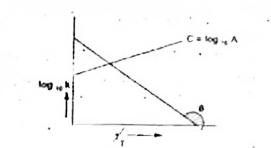The rate of a certain reaction increases by 2.3 times when the temperature is raised form 300K to 310K. If k is the rate constant at 300K, then the rate constant at 310K will be equal to
2k
k
2.3k
3k2
The correct Answer is:C
Since k∝T.
Hence, k310K=2.3k300K
Topper's Solved these Questions
- BOOK - CENGAGE CHEMISTRYCHAPTER - CHEMICAL KINETICSEXERCISE - Exercises Assertion-Reasoning22videos
CHEMICAL KINETICS
- BOOK - CENGAGE CHEMISTRYCHAPTER - CHEMICAL KINETICSEXERCISE - Exercises Integer15videos
CHEMICAL KINETICS
- BOOK - CENGAGE CHEMISTRYCHAPTER - CHEMICAL KINETICSEXERCISE - Exercises Multiple Correct34videos
CHEMICAL KINETICS
- BOOK - CENGAGE CHEMISTRYCHAPTER - CARBOXYLIC ACIDS AND THEIR DERIVATIVESEXERCISE - Exercises Archives (Analytical And Descriptive)34videos
CARBOXYLIC ACIDS AND THEIR DERIVATIVES
- BOOK - CENGAGE CHEMISTRYCHAPTER - COORDINATION COMPOUNDSEXERCISE - Archives Subjective18videos
COORDINATION COMPOUNDS
Similar Questions
The rate of a reaction increases to 2.3 times when the temperature is raised form 300K to 310K. If Q is the rate constant at 300K, then the rate constant at 310K will be equal to
View SolutionIf the rate of reaction increases by a factor of 2.36 , when the temperature is raised from 300 K to 313 K .What is the energy activation ? R=8.314JK−1mol−1
View Solution
Knowledge Check
- Question 1 - Select One
When the temperature is increased, heat is supplied which increases the kinetic energy of the reacting molecules. This shall increase the number of collisions and ultimately the rate of reaction shall be enhanced. Arrhenius suggested a equation which describes K as a function of temperature, i.e.
k=Ae−Ea/RT
where
k= rate constant
A= a constant (frequency factor)
Ea= energy of activation
log10k=log10A−Ea2.303R[1R]
Y=C+MX
It is the equation of straight line with negative slope. On plotting log10k against [1T] we get a straight line as shown below :

The slope gives activation energy and intercept gives frequency factor.
Also log.k2k1=Ea2.303[T2−T1T1T2]
The rate of certain reaction increases by 2.5 times when the temperature is raised from 300K to 310K. If k is the rate constant at 300K then rate constant at 310K will be equal toAkB2kC2.5kD13k - Question 2 - Select One
The rate of a certain reaction increases by 2.5 times when the temperature is raised from 300K at 310K. If k is the rate constant at 300K then the rate constant at 310 K will be equal to
AkB2kC2.5kD3k - Question 3 - Select One
The rate of a reaction increases by 2.5 times when the temperature is raised from 300K to 310K. If K is the rate constant at 310 K will be equal to
AKB2KC2.5KD3K
The rate constant of a reaction increases by 7% when its temperature is raised from 300 K to 310 K, while its equilibrium constant increases by 3%. Calculate the activation energy of the forward and reverse reactions.
View SolutionThe activation energy for a reaction when the temperature is raised from 300K to 310K is
View SolutionWhat is the energy of activation of a reaction is its rate doubles when the temperature is raised from 290 K to 300 K ?
View SolutionWhat is the energy of activation of a reaction if its rate doubles when the temperature is raised from 290 K to 300 K?
View SolutionThe activation energy for a reaction that doubles the rate when the temperature is raised from 300 K to 310 K is (log 2 = 0.3)
View Solution

